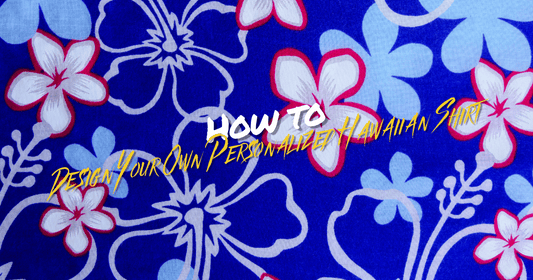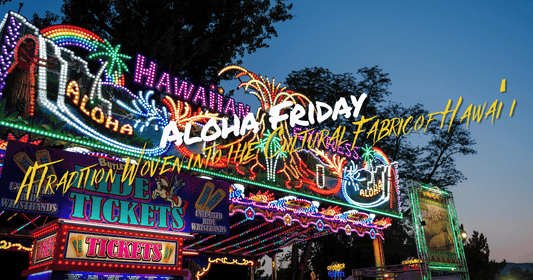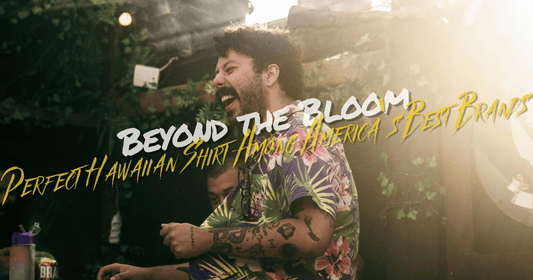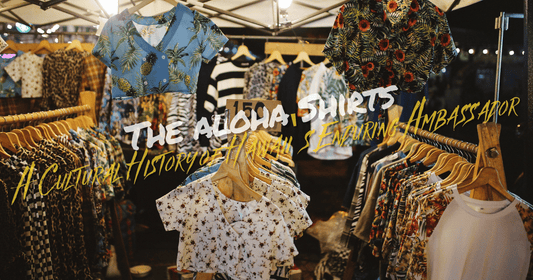I. Introduction: Mahalo —More Than Just "Thank You"
The Hawaiian language, ʻŌelo Hawaiʻ, is rich with words that encapsulate profound cultural concepts. Among these, Mahalo stands out as a cornerstone expression, frequently heard throughout the islands of Hawaiʻ. While commonly translated as "thank you," this simple rendering barely scratches the surface of its multifaceted significance. Mahalo is interwoven with core Hawaiian values, reflecting a worldview centered on gratitude, respect, and interconnectedness. Its prevalence extends beyond daily interactions, permeating formal occasions, business practices, and cultural discourse within Hawaiʻ, and it is gaining recognition globally. This report aims to provide a comprehensive exploration of Mahalo, delving into its layered meanings, deep cultural roots, debated origins, proper usage, and enduring relevance in the contemporary world, drawing upon available linguistic and cultural documentation. Understanding such culturally significant terms is crucial for engaging respectfully with Hawaiian culture and appreciating the depth embedded within its language.
II. Defining Mahalo: Layers of Meaning
The most immediate and widely recognized translation of Mahalo is "thank you" or "thanks". This usage is ubiquitous in Hawaiʻ, employed in everyday situations where gratitude is expressed. However, authoritative sources like the Pukui and Elbert Hawaiian Dictionary reveal a much broader semantic field.
Beyond simple thanks, Mahalo encompasses meanings such as gratitude, admiration, praise, esteem, regards, respects, and appreciation. Early 20th-century dictionaries also list "wonder" and "approbation". This expanded range is evident in specific Hawaiian phrases. For instance, ʻŌelo mahalo translates to a compliment, an expression of praise or admiration. The phrase Ka mea i mahalo ʻa, followed by a name, means "the esteemed" or "the respected" individual, highlighting the dimension of honor associated with the word. Similarly, closing a formal letter with ʻ wau nō me ka mahalo translates to "[Yours] respectfully," indicating regard and esteem. Some interpretations even extend Mahalo to encompass the idea of a blessing.
This collection of meanings—spanning from gratitude to admiration and respect—is significant. It suggests that within the cultural context from which Mahalo arises, the act of expressing thanks is often intrinsically linked with acknowledging the inherent worth, positive qualities, or esteemed status of the person, action, or gift being acknowledged. It points towards a holistic form of appreciation where gratitude and respect are inseparable facets of the same expression, differing perhaps from contexts where "thank you" might carry a more purely transactional or polite function.
III. The Heart of Mahalo: Cultural Significance and Values
Mahalo is not merely a word but a verbal embodiment of fundamental Hawaiian cultural values, deeply connected to the concept of Aloha. Alongside Aloha (love, compassion, breath of life), Mahalo represents paramount Hawaiian values, with both words believed to possess mana, or spiritual power. Saying Mahalo can be seen as expressing appreciation for the Aloha received or observed in an interaction, acknowledging the shared life essence and connection.
Gratitude itself is a foundational element in Hawaiian and broader Polynesian cultures. Mahalo serves as the primary linguistic vehicle for this deeply held value. It is described not just as an expression but as a guiding principle, a reminder to exist in a state of thankfulness for life's blessings. This attitude of gratitude ideally permeates all aspects of life and is demonstrated through actions.
The expression of Mahalo is closely tied to the cultural emphasis on reciprocity and community, known as ohana. In ancient Hawaiʻ, survival depended on strong community bonds and reciprocal exchange networks. Expressing gratitude through Mahalo reinforces these essential bonds, acknowledging interdependence and fostering the spirit of teamwork that holds the community together. It signifies recognition of shared connections and mutual support within the ohana.
While expressing gratitude is vital, it is balanced by the value of humility, or haʻhaʻ. Mahalo should be offered with sincerity and genuine feeling, but also with a sense of modesty, acknowledging kindness received without self-aggrandizement.
Furthermore, Mahalo connects to the concepts of kuleana (responsibility, right, privilege) and pono (righteousness, morality, correctness). Expressing gratitude acknowledges a positive interaction, while the concept of kuleana implies an ongoing responsibility towards others and the ʻāna (land). This link is explicitly highlighted in one common response to Mahalo: Māama pono. Literally meaning "take care," this phrase, used similarly to "you're welcome," serves as a reminder of the mutual kuleana community members have towards each other, encouraging actions that maintain balance and social harmony (pono).
Gratitude, as expressed through Mahalo, also extends profoundly to the natural environment. The concept of aloha ʻāna (love for the land) signifies deep respect and stewardship for the land that sustains life. Expressing Mahalo can encompass appreciation for the bounty of the land and sea. This value is implicitly referenced even in the placement of Mahalo signs on trash receptacles, encouraging care for the environment as an act of gratitude for the islands' beauty and resources.
Taken together, these connections reveal that Mahalo operates on a much deeper level than a simple polite phrase. It functions as a verbalization of a comprehensive worldview rooted in gratitude, respect, humility, reciprocity, community (ohana), responsibility (kuleana), righteousness (pono), and a profound connection to the land (ʻāna). It is more than something one says; it reflects a way of being, encouraging individuals to "live in thankfulness" and actively demonstrate that gratitude through service and care.
IV. Origins and Evolution: Tracing the Etymology of Mahalo
The linguistic origins of Mahalo are generally traced back through the Polynesian language family. The Pukui and Elbert Hawaiian Dictionary (1986) states that Mahalo derives from the Proto-Polynesian word *masalo. Other sources specify Proto-Eastern Polynesian *masalo as the immediate ancestor. A deeper connection has been proposed to the Proto-Malayo-Polynesian word *sadə, which relates to words meaning pleasant or savory in other Austronesian languages like Tagalog (masarap) and Malay (sedap).
However, a significant point of discussion exists regarding the specific meaning of "thank you" or "gratitude." Several sources suggest this particular connotation was appended to Mahalo following contact with Western cultures. Evidence supporting this view includes the fact that Lorrin Andrews' 1865 A Dictionary of the Hawaiian Language, while listing the word mahalo, does not provide any Hawaiian equivalent for "gratitude" or "thanks" in its English-to-Hawaiian section. Furthermore, accounts from early Western visitors, such as John B. Whitman (1813-1815) and Isabella Bird (1875), noted that while Hawaiians were perceived as generous and grateful people, they appeared to lack a specific word to explicitly express "thank you". This suggests that while the value of gratitude was present, the specific speech act of saying "thank you" may not have been conventional in the same way, perhaps being expressed through actions or other means. The adoption of Mahalo for this purpose would then represent a linguistic adaptation to new modes of interaction introduced through cross-cultural contact.
An alternative, more spiritual etymology has also been proposed, breaking down Mahalo into Ma (in) + hâ (breath) + alo (presence, front, face), yielding the meaning "(May you be) in Divine Breath". This interpretation, reportedly sourced from a contributor on Yahoo Answers, emphasizes the sacredness of the word, viewing it as a divine blessing and an acknowledgment of the divine essence (mana) within individuals. While not presented as the primary linguistic origin by standard dictionaries like Pukui and Elbert, this breakdown reflects a cultural desire to imbue the word with profound spiritual weight, highlighting its perceived power and significance beyond mere politeness.
These different threads—the established Proto-Polynesian roots, the historical debate surrounding the "thank you" meaning, and the folk spiritual etymology—collectively illustrate the complex history of Mahalo. It appears to be a word with ancient origins within the Polynesian language family, likely carrying connotations of admiration and respect. Its specific use for "thank you" may have solidified or emerged due to cultural exchange, mapping onto the pre-existing cultural importance of gratitude. Over time, it has also acquired deep spiritual interpretations for some, further cementing its status as a powerful and meaningful word in Hawaiian culture.
V. Voicing Gratitude: Pronunciation, Phrases, and Responses
Using Mahalo respectfully involves understanding its correct pronunciation, related expressions, and appropriate responses.
Pronunciation:
The generally accepted pronunciation is three syllables with emphasis on the second: mah-HAH-loh. Some phonetic guides simply render it as ma-ha-lo. Audio recordings confirm this rhythm, with clear vowel sounds typical of Hawaiian. Attempting correct pronunciation is a basic sign of respect when using Hawaiian words.
Common Related Phrases and Responses:
Several phrases incorporate Mahalo to nuance the expression of gratitude. Understanding these, along with common responses, facilitates more culturally attuned communication.
| Phrase | Pronunciation Guide | Meaning | Context/Notes | Common Response(s) |
|---|---|---|---|---|
| Mahalo | mah-HAH-loh | Thank you, thanks, gratitude, admiration | General expression of gratitude or respect | ʻʻle pilikia, Māama pono, Aloha, "You're welcome" |
| Mahalo nui loa | mah-HAH-loh NOO-ee LOH-ah | Thank you very much | Expresses deeper gratitude; nui means big/great, loa means very/much | ʻʻle pilikia, Māama pono, Aloha, "You're welcome" |
| Mahalo nui | mah-HAH-loh NOO-ee | Thank you very much | Similar to Mahalo nui loa | ʻʻle pilikia, Māama pono, Aloha, "You're welcome" |
| Mahalo ā nui | mah-HAH-loh (W)AH' NOO-(w)ee | Thanks very much | Another variation for strong thanks | ʻʻle pilikia, Māama pono, Aloha, "You're welcome" |
| Mahalo Ke Akua | mah-HAH-loh keh ah-KOO-ah | Thanks be to God | Expressing gratitude towards a higher power | N/A |
| Mahalo no ka ʻi | mah-HAH-loh noh kah AH-ee | Thank you for the food | Specific gratitude for a meal, acknowledging shared food's importance | ʻʻle pilikia, Aloha |
| Mahalo iā ʻe | mah-HAH-loh ee-AH OH-eh | Thank you to you | Direct address, can add name for personalization | ʻʻle pilikia, Māama pono, Aloha, "You're welcome" |
| Mahalo no ke kōua | mah-HAH-loh noh keh KOH-koo-ah | Thank you for the help/assistance | Acknowledging help received; kōua means help/support | ʻʻle pilikia |
| ʻŌelo mahalo | OH-leh-loh mah-HAH-loh | Compliment | An expression of praise or admiration | Mahalo |
| ʻʻle pilikia | ah-OH-leh pee-lee-KEE-yah | No problem, You're welcome | Common response to Mahalo; reinforces humility, teamwork | N/A |
| Māama pono | MAH-lah-mah POH-noh | Take care (used as "You're welcome") | Response reminding of mutual kuleana (responsibility) | N/A |
| Aloha | ah-LOH-hah | Love, hello, goodbye (used as response) | Warm acknowledgment in response to Mahalo | N/A |
Common Responses to Mahalo:
When someone says Mahalo, several responses are considered appropriate. ʻʻle pilikia (pronounced ah-OH-leh pee-lee-KEE-yah) is very common, translating to "no problem" or "you're welcome". This response aligns with the cultural value of humility and reinforces the spirit of cooperation. Another meaningful response is Māama pono, literally "take care," which subtly reminds both parties of their interconnectedness and mutual responsibilities (kuleana). Simply responding with Aloha can also serve as a warm acknowledgment. In many contemporary interactions, especially involving visitors, the English "You're welcome" is also perfectly acceptable. Some sources suggest that locals may prioritize the sincerity and respect behind the interaction over the specific words used in response.
VI. Common Misunderstandings: Setting the Record Straight
Despite its prevalence, Mahalo is subject to common misunderstandings, particularly among visitors unfamiliar with the language and culture.
The "Trash Can" Myth:
Perhaps the most widespread misconception is that Mahalo means "trash". This error arises because the word Mahalo is frequently printed on public waste receptacles throughout Hawaiʻ. Tourists observing this pattern incorrectly infer the meaning based on the object's function.
Clarification:
The actual intent behind these signs is to express gratitude --"Thank you [for disposing of your trash properly]" or "Thank you [for helping keep Hawaiʻ clean]". The Hawaiian word for trash or garbage is ʻōala. The signs are essentially saying Mahalo no ke kōua --thank you for your help or cooperation --in maintaining the cleanliness and beauty of the islands, an act reflecting care for the ʻāna (land). This common misunderstanding serves as a potent reminder of how meaning is derived from context and how surface observation without cultural understanding can lead to significant errors. The existence of a children's book titled Mahalo Does Not Mean Trash highlights how widely recognized this specific confusion is, transforming it into a teachable moment about gratitude, language, and Hawaiian culture.
Importance of Sincerity:
Another important aspect, though perhaps less a direct misunderstanding of meaning, relates to the manner of usage. Hawaiian culture places emphasis on the power (mana) inherent in words, particularly significant ones like Aloha and Mahalo. Consequently, these words are ideally used with sincerity and genuine feeling, not carelessly, trivially, or purely out of habit. While locals are often understanding of visitors' attempts to use the language, striving for heartfelt expression aligns best with the cultural spirit behind the word. Furthermore, mispronouncing Hawaiian words intentionally or in a mocking manner is considered disrespectful. Using Mahalo thoughtfully demonstrates respect for the culture it represents.
VII. Mahalo in the Modern World: Contemporary Usage and Global Reach
Mahalo remains a vibrant and integral part of contemporary life in Hawaiʻ, its usage spanning a wide range of contexts. It is heard constantly in daily interactions among residents, serving as a fundamental expression of courtesy and appreciation.
The word features prominently in the tourism and hospitality industry, often being one of the first Hawaiian words visitors learn and are encouraged to use. In this context, using Mahalo is presented as a way for visitors to show respect for the local culture and people.
Mahalo has also found its way into the commercial sphere, frequently used in business names and marketing efforts. Examples range from local flower shops and clothing brands to digital marketing agencies, specialized marketing services, and community outreach programs like the Office of Hawaiian Affairs' "Meals & Mahalo" initiative supporting frontline workers and Native Hawaiian-owned businesses. Major corporations operating in Hawaiʻ also incorporate the term in their communications and campaigns to connect with the local market and express appreciation.
Beyond everyday politeness and commerce, Mahalo plays a role in the broader movement of Hawaiian language and cultural revitalization. Using ʻŌelo Hawaiʻ, including fundamental words like Mahalo, is a way for Native Hawaiians and others to connect with ancestral knowledge, traditions, and identity. Its use in formal speeches, academic acknowledgments, official communications, and community and political discourse underscores its enduring significance in contemporary Hawaiian society.
The recognition of Mahalo is also growing outside of Hawaiʻ. While primarily associated with the islands, its use is occasionally noted elsewhere, sometimes by individuals with connections to Hawaiʻ or simply as a borrowed term. Hawaiian music, film, and cultural events reaching international audiences further contribute to its global visibility.
This widespread contemporary usage demonstrates the vitality and adaptability of Mahalo. However, its integration into tourism and marketing also raises considerations about potential commodification. When used superficially as a mere slogan, there is a risk of detaching the word from its deeper cultural resonance. The conscious efforts by cultural organizations and tourism authorities to promote authentic representation and respectful use of Hawaiian language and culture, including terms like Mahalo, reflect an awareness of this dynamic and a commitment to preserving cultural integrity. The modern life of Mahalo thus reflects both its enduring cultural power and the complex interplay between cultural preservation and globalization.
VIII. Conclusion: Embracing the Enduring Spirit of Mahalo
In conclusion, the Hawaiian word Mahalo transcends its common translation of "thank you." It is a rich, multifaceted term signifying not only gratitude but also admiration, praise, respect, and esteem. Its meaning is deeply embedded within a framework of core Hawaiian cultural values, including aloha (love, compassion), reciprocity, community (ohana), humility (haʻhaʻ), responsibility (kuleana), righteousness (pono), and a profound connection to the land (ʻāna). Understanding these layers is essential for appreciating the full weight and significance of the word.
The etymological journey of Mahalo, likely originating from Proto-Polynesian *masalo with the specific "thank you" meaning possibly solidifying post-contact, reflects the dynamic nature of language and culture under external influence. Alternative spiritual interpretations further enrich its meaning for many, highlighting its perceived sacredness.
Practically, respectful use involves attempting correct pronunciation (mah-HAH-loh), understanding intensified forms like Mahalo nui loa ("Thank you very much"), and recognizing appropriate responses such as ʻʻle pilikia ("No problem") or Māama pono ("Take care"). It is crucial to move beyond common misconceptions, particularly the erroneous association with "trash," and to use the word with sincerity, recognizing the cultural emphasis on genuine expression.
In the contemporary world, Mahalo remains a vital part of communication and identity in Hawaiʻ, prevalent in daily life, tourism, business, and cultural expression. Its growing global recognition speaks to the appeal of Hawaiian culture. Yet, its very popularity necessitates mindful usage to avoid superficiality and honor its deep roots. Mahalo serves as more than just a word; it is a powerful symbol of a worldview that values gratitude, respect, and interconnectedness. Embracing the spirit of Mahalo, whether within Hawaiʻ or beyond, offers a valuable lesson in living with appreciation and acknowledging the bonds that connect humanity and the environment. Using it thoughtfully is an act of cultural respect and participation in the enduring spirit of aloha.
Resources
-
Appreciating Hawaiian Culture and History - American College of Chest Physicians, https://www.chestnet.org/newsroom/blog/2023/06/appreciating-hawaiian-culture-and-history
-
Mahalo Meaning: Must-Know Hawaiian Vocabulary, https://collectionsofwaikiki.com/mahalo-meaning/
-
What Does Mahalo Mean In Hawaiian? | Updated 2025 - Aloha Shirt Shop, https://www.alohashirtshop.com/blogs/hawaiian-lifestyle/what-does-the-word-mahalo-mean
-
24 Hawaiian Phrases And Words To Know Before You Go, https://www.goaheadtours.com/travel-blog/articles/hawaiian-phrases-to-know-before-you-go
-
Mahalo-ve: One Love, One Gratitude - polynesia.com | blog, https://blog.polynesia.com/mahalo-ve-one-love-one-gratitude
-
14 Hawaiian phrases to learn before your next trip to Hawaii - Trafalgar Tours, https://www.trafalgar.com/real-word/hawaiian-words-and-phrases/
-
Ma'ema'e - Hawaii Tourism Authority, https://www.hawaiitourismauthority.org/media/10516/maemae-toolkit_withspread.pdf
-
Mahalo - Wikipedia, https://en.wikipedia.org/wiki/Mahalo
-
MAHALO Definition & Meaning - Dictionary.com, https://www.dictionary.com/browse/mahalo
-
5 Common Hawaiian Words to Know for Your Hawaii Vacation - And You Creations, https://andyoucreations.com/blog/5-common-hawaiian-words/
-
What Does Mahalo Mean? - Hawaii Real Estate Market & Trends, https://www.hawaiilife.com/blog/what-does-mahalo-mean/
-
Mahalo - Hawaiian Dictionaries - Nā Puke Wehewehe ʻŌlelo ..., https://wehewehe.org/gsdl2.85/cgi-bin/hdict?d=D11816&l=en&e=d-11000-00---off-0hdict--00-1----0-10-0---0---0direct-10-ED--4--textpukuielbert%2Ctextmamaka%2Ctextandrew%2Ctextparker%2Ctextpeplace%2Ctextclark%2Ctextchd-----0-1l--11-en-Zz-1---Zz-1-home-mahalo--00-4-1-00-0--4----0-0-11-00-0utfZz-8-00
-
How to Say Thankful in Hawaiian: Best Way to Embrace the Aloha Spirit, https://blog.polynesianpride.co/how-to-say-thankful-in-hawaiian/
-
Mahalo - YouTube, https://www.youtube.com/watch?v=-YUMi7RBkbU
-
What Does Mahalo Mean In Hawaiian? | Updated 2025 - Aloha Shirt Shop, https://www.alohashirtshop.com/en-ca/blogs/hawaiian-lifestyle/what-does-the-word-mahalo-mean
-
What Does Mahalo Mean In Hawaiian? | Paradise Found Shirts, https://paradisefoundshirts.com/blogs/news/what-does-mahalo-mean-in-hawaiian
-
Mahalo : r/etymology - Reddit, https://www.reddit.com/r/etymology/comments/u5dkic/mahalo/
-
Mahalo, More than Thank You, https://mahalodonna.com/mahalo-more-than-thank-you/
-
Mahalo - Hawaiian Dictionaries, https://wehewehe.org/gsdl2.85/cgi-bin/hdict?e=q-11000-00---off-0hdict--00-1----0-10-0---0---0direct-10-ED--4--textpukuielbert%2Ctextmamaka-----0-1l--11-en-Zz-1---Zz-1-home-mahalo--00-3-1-00-0--4----0-0-11-00-0utfZz-8-00&a=d&d=D75945
-
Meaning of Mahalo - Koloa Jodo Mission- Buddhist Temple, https://www.koloajodo.com/2013/01/18/meaning-of-mahalo/
-
mahalo - Wiktionary, the free dictionary, https://en.wiktionary.org/wiki/mahalo
-
collectionsofwaikiki.com, https://collectionsofwaikiki.com/hawaiian-phrases/
-
Mahalo Does Not Mean Trash - Amazon.com, https://www.amazon.com/Mahalo-Does-Not-Mean-Trash/dp/B0BMSKP91Z
-
Amazon.com: Mahalo Does Not Mean Trash eBook, https://www.amazon.com/Mahalo-Does-Not-Mean-Trash-ebook/dp/B0BMPJJ1W2
-
The Spirit of Aloha: Learning Hawaiian Greetings and Etiquette | Kohala Coast properties, https://kohalacoastpropertiesinc.com/the-spirit-of-aloha-learning-hawaiian-greetings-and-etiquette/
-
Speaking Hawaiian ~ Embracing the Aloha Spirit - Kauai Advisor, https://www.kauaiadvisor.com/speaking-hawaiian-embracing-the-aloha-spirit/
-
The Duty to Aloha '¯Aina: Indigenous Values as a Legal Foundation for Hawai'i's Public Trust - University of Hawaii at Manoa, https://manoa.hawaii.edu/kahuliao/wp-content/uploads/sites/122/2023/03/The-Duty-To-Aloha-Aina.pdf
-
Top Ten Hawaiian Words for Visitors to Know - Four Winds Maui, https://www.fourwindsmaui.com/top-ten-hawaiian-words-for-visitors-to-know/
-
How to Live Like a Local in Hawaii, https://gotourshawaii.com/how-to-live-like-a-local-in-hawaii/
-
8 Things You Should Never Say to Hawaiians - Pink Pangea, https://pinkpangea.com/2015/02/8-things-never-say-hawaiians/
-
Guide To Common Hawaiian Words and Phrases | Flower Leis, https://www.flowerleis.com/info/custom-of-aloha/hawaiian-words-and-phrases/
-
How to pronounce Mahalo | HowToPronounce.com, https://www.howtopronounce.com/mahalo
-
How to Pronounce Mahalo - YouTube, https://www.youtube.com/watch?v=XXBWwtHJ_v4
-
Mahalo Nui Loa by Rose Oyamot - YouTube, https://www.youtube.com/watch?v=1HuyUX10ozQ
-
We'd like to say mahalo. - YouTube, https://www.youtube.com/watch?v=Balkb_8BHwU
-
How to pronounce mahalo in Hawaiian, English - Forvo, https://forvo.com/word/mahalo/
-
How to pronounce Mahalo Ke Akua | HowToPronounce.com, https://www.howtopronounce.com/mahalo-ke-akua
-
mahalo nui loa - Wiktionary, the free dictionary, https://en.wiktionary.org/wiki/mahalo_nui_loa
-
18 Basic Hawaiian Words and Phrases - Travel + Leisure, https://www.travelandleisure.com/travel-tips/learn-hawaiian-words
-
SPIRITUALITY: OLI AND PULE THROUGH THE MOʻOLELO OF HAWAIIAN HEALERS A THESIS SUBMITTED TO THE GRADUATE DIVISION OF THE UNIVERS - ScholarSpace, https://scholarspace.manoa.hawaii.edu/bitstreams/20f4b015-320f-45bc-8890-0eefe4b111b8/download
-
17 Hawaiian Words and Phrases to Learn Before You Visit Hawaiʻi - Maoli, https://hawaiimaoli.com/blogs/maoli-life/17-hawaiian-words-and-phrases-to-learn-before-you-visit-hawaii
-
Tourist question: Should we say “aloha” and “mahalo?” : r/Hawaii - Reddit, https://www.reddit.com/r/Hawaii/comments/7s9pte/tourist_question_should_we_say_aloha_and_mahalo/
-
Feathered Quill Book Review of Mahalo Does Not Mean Trash, https://featheredquill.com/mahalo-does-not-mean-trash/
-
Statewide Media Tips | Go Hawaii Media, https://media.gohawaii.com/statewide/media-support/media-tips
-
With Hawaiian Flavor, Mahalo Looks to Make Mark in Clothing Industry - Trinity – ECHO, https://trinityecho.com/12226/features/with-hawaiian-flavor-mahalo-looks-to-make-mark-in-clothing-industry/
-
Meet Mahalo | About, https://mahalodigital.com/about/
-
Hawaii Music Festivals: Feel the Rhythm, Celebrate Sound, Spirit, and Aloha, https://hawaii.com/hawaii-music-festivals/ting MAHALO | Promoting Paradise - Kauai, Hawaii Business Creation, https://www.promotingparadise.com/marketing-mahalo
-
Meals & Mahalo: OHA and Native Hawaiian-Owned Businesses Give Back to Frontline Hospital Workers - Ka Wai Ola, https://kawaiola.news/mauliola/meals-mahalo-oha-and-native-hawaiian-owned-businesses-give-back-to-frontline-hospital-workers/
-
Case Studies - 6 Pillars Marketing, https://6pillarsmarketing.com/case-studies/
-
Mahalo to Our Sponsors - Hawaii Quality of Life, https://www.hawaiiqualityoflife.org/sponsors/
-
Hawaiian small business owners receive free commercial time through Spectrum, https://spectrumlocalnews.com/hi/hawaii/news/2023/09/22/hawaiian-small-business-owners-spectrum-
-
Hawaiian Language Essentials: Greetings and Cultural Significance, https://volcanovillageestates.com/hawaiian-language-guide
-
Mahalo x Aloha | The words that shape our business, https://mahalosurfexperience.com/mahalo-x-aloha/
-
“Now we know”: Eight reasons why so many Kānaka Maoli oppose US federal recognition, https://hehiale.com/2016/09/26/now-we-know-eight-reasons-why-so-many-kanaka-maoli-oppose-us-federal-recognition/
-
Creating ʻOhana - BYUH Speeches, https://speeches.byuh.edu/devotionals/creating-%CA%BBohana
-
Under International Law, all Members of the United Nations recognize the Continuity of the Hawaiian Kingdom's existence as a Independent State and the Council of Regency as its Government, https://hawaiiankingdom.org/blog/under-international-law-all-members-of-the-united-nations-recognize-the-continuity-of-the-hawaiian-kingdoms-existence-as-a-independent-state-and-the-council-of-regency-as-its-government/










